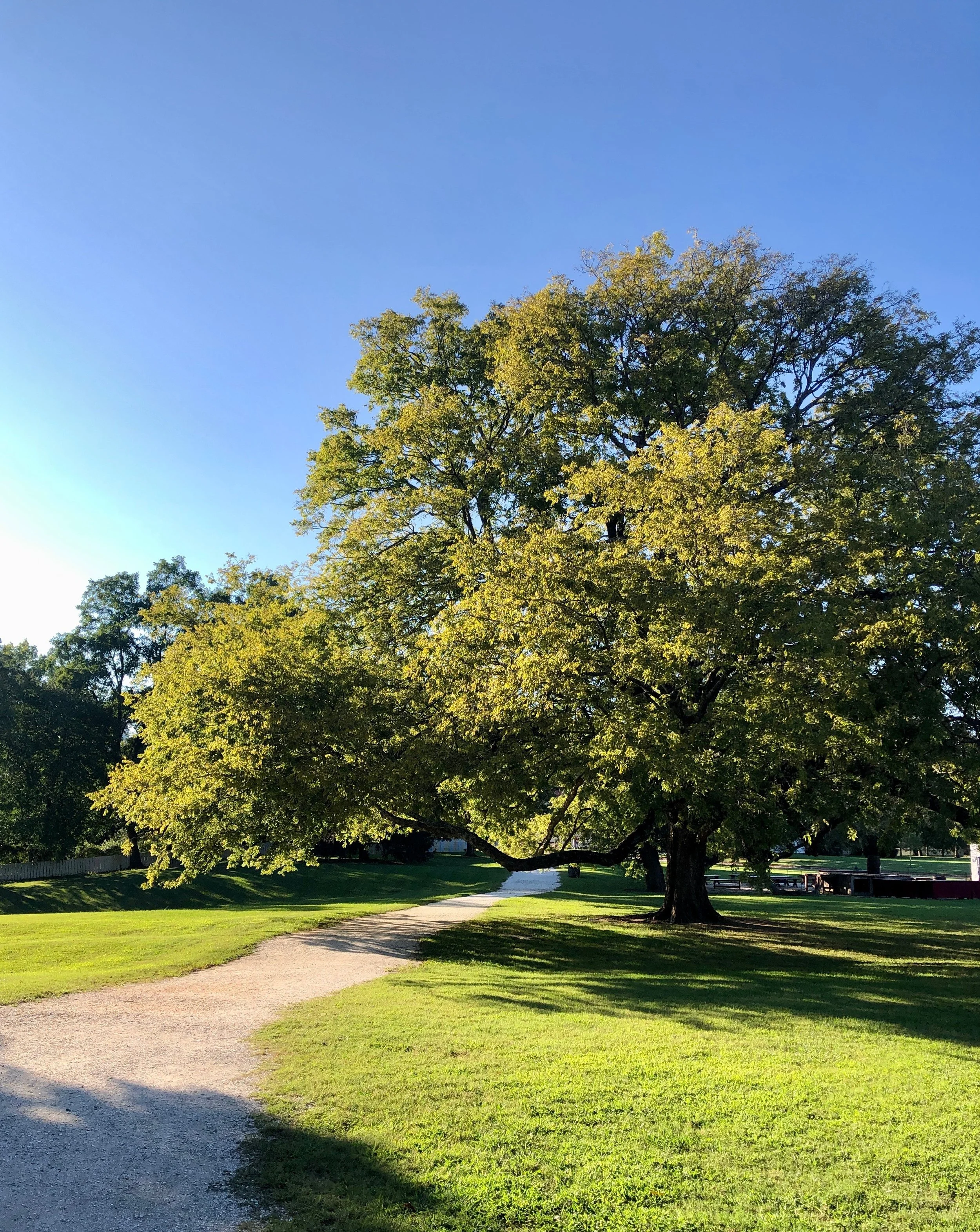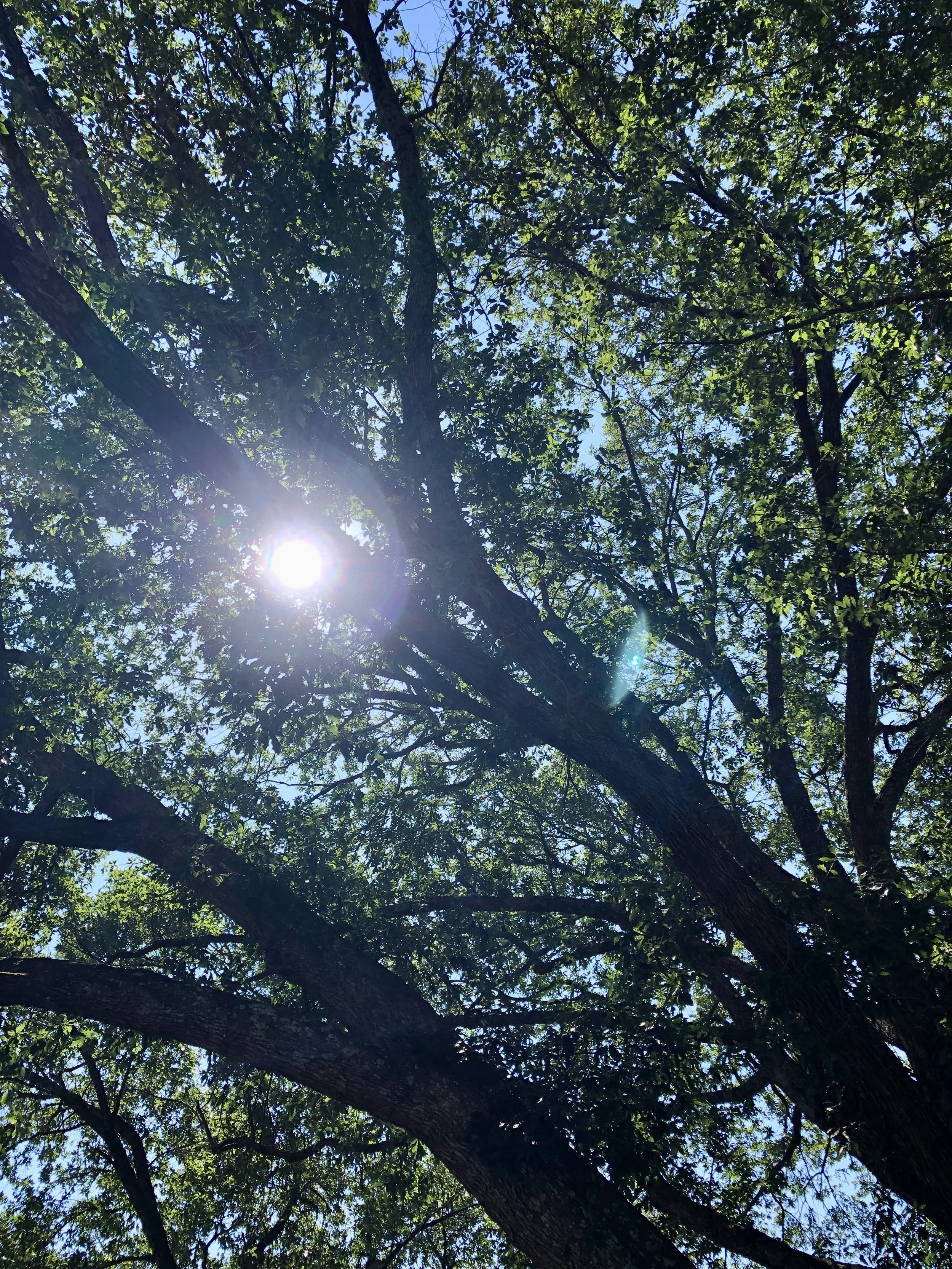Reenactments
At the end of the summer, I got away for a weekend writing retreat in quaint Colonial Williamsburg. I didn’t know what I was getting myself into when I chose the location. I was merely drawn to the promise of quiet, time alone to think, and a fairly short drive from Virginia Beach.
I set out on a walk that Saturday afternoon to clear my head of the morning’s writing and immediately wondered if I’d stumbled into an episode of West World. Colonial Williamsburg is like a large, outdoor museum where the daily customs of the first American colonists are reenacted. Think cobblestone paths, horse-drawn carriages, restored brick architecture, and employees dressed up in 18th-century garb. Near the end of my walk and just a few hundred feet from my hotel, the deafening POP of gunfire made me jump off the sidewalk. I turned around to figure out what was happening and saw that a massive, Civil War-era cannon had been set off during a museum demonstration. Smoke rose from its black mouth as the surrounding crowd cheered in awe.
I went back to my room and poured a splash of bourbon, my body jittery from the jarring way that past images were colliding with my present. Over the summer months, I’d been saturating myself in memoirs by fellow female veterans and was currently reading The Fine Art of Camouflage by Lauren Kay Johnson, a former Air Force officer involved in America’s occupation and colonization of Afghanistan. The memoir shows the futility of war, the terror of combat, and how our role in Afghanistan was based “largely on theory, and wishful thinking.”
The tagline of Colonial Williamsburg is “That the future may learn from the past.” And yet, the books I was reading were written precisely because we hadn’t learned from the past. We’d reenacted it. Colonial reenactments had happened over the last two decades in The War on Terror and were being performed a few hundred feet from my hotel room for a cheering crowd. Surely there’s great value in preserving history, but I was aware of the fine line between quaint nostalgia for the past versus an honest appraisal of its impact.
The timing of my inadvertent field trip, paired with my deep affection for female veterans, felt strange and symbolic. A year and a half ago, I entered an annual contest for veteran writers run by The Iowa Review (TIR), one of my dream publications. I submitted the first two chapters of my memoir manuscript, thinking it was a long shot, but why not? My submission ended up winning 2nd place and was published last month in TIR alongside other veteran writers.
One of the most touching parts of the issue is the Editor’s Note by Lynne Nugent. She recalls attending a panel of female veterans several years ago at the Association of Writers and Writing Program’s annual conference when the topic of sexual abuse coverups in the military came up, one panelist stating, “When you report a problem, all of a sudden you are the problem because you are the snitch.” The statement resonated with what Nugent already knew about power and institutions, in which labels like “snitch, complainer, not-one-of-the-guys, or any term meant to silence,” are tools of oppression.
Her words reminded me that speaking up comes at a huge cost to the speaker. It’s terrifying and isolating but also vital if we want to stop oppressive patterns. I know I couldn’t have stopped or even identified my own reenactments of the past had I not started to use my voice, both written and spoken. It reminds me of a Thomas Merton quote I recently read: “We make ourselves real by telling the truth.”
If you’d like the read the published excerpt, you can find it online HERE.You can also order a gorgeous print copy and enjoy the many spectacular essays, short stories, and poems in the issue. Also, check out this masterful winning essay by fellow veteran Laura Joyce-Hubbard, one of the first women to pilot the C-130 in the Air Force.
If you’re interested in more truth-telling memoirs by other female vets, check out Fidelis by Teresa Fazio, a former marine deployed to Iraq, and Leaving Isn’t The Hardest Thing by Lauren Hough, a memoir in essays about her military experience, being raised in a cult, sexuality, and her desire for belonging.
Though many aspects of Colonial Williamsburg left me unsettled, I was also struck by its immense beauty. The trees along the old gravel and brick paths felt ancient, and eventually I realized many of my photos mirrored the cover of TIR’s latest issue. What a cool convergence!
This is all for now, but I’d love to hear what you’re learning in your reading, writing, or creative processes. Thanks to so many of you for your encouragement and support along the way. I hope you’re enjoying the autumn weather, perfect for contemplation and creation of all kinds.
If you’d like to receive future writerly musings, pub updates, and news about future course offerings, please subscribe below!




